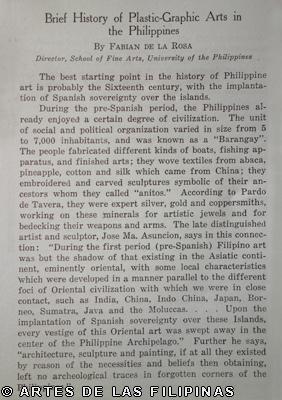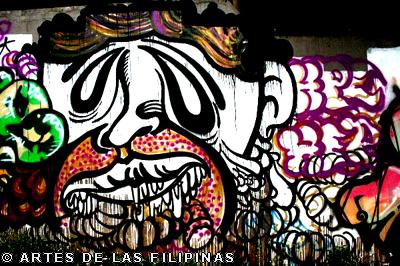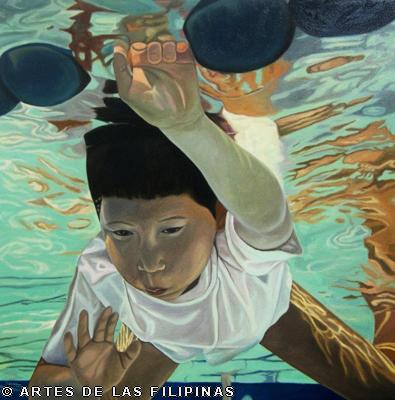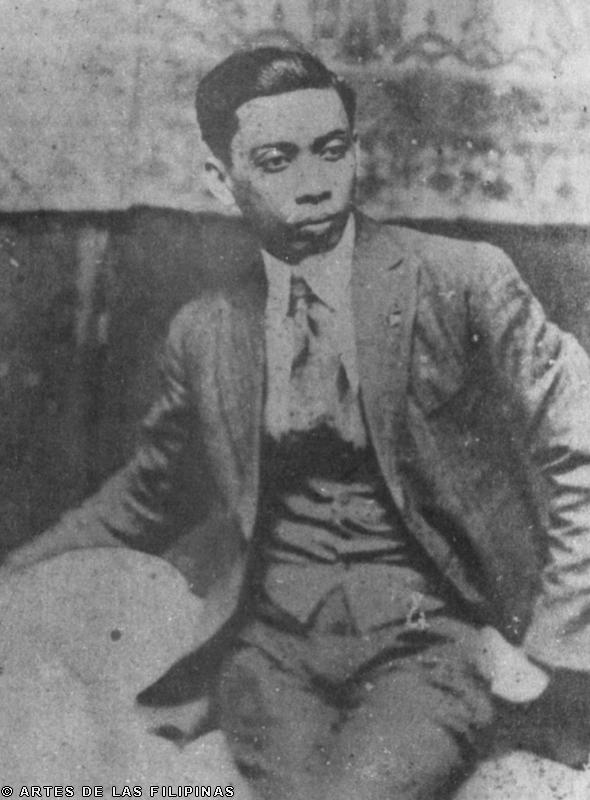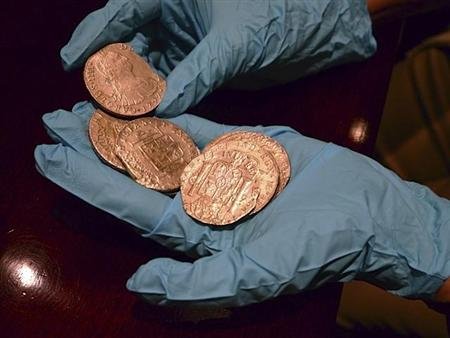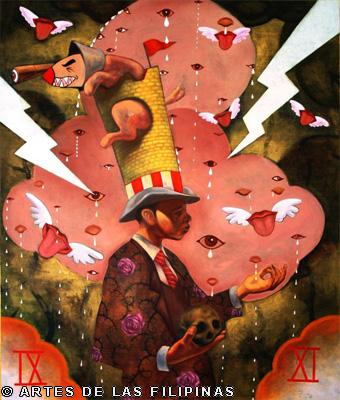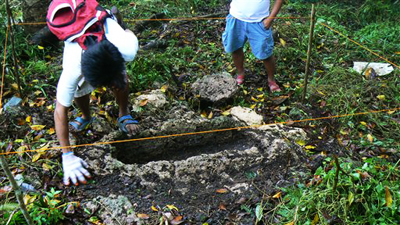
MARCEL BELLEZA ANTONIO:
THE SON, THE MAN, THE PAINTER
(First of Two Parts)
by: Christiane L. de la Paz
April 2006 — The works of Marcel Antonio belong to an expressive and non-literary tradition of storytelling. He began his career in 1983 while still a sophomore at the University of the Philippines College of Fine Arts. He was talented and his art had a sense of magical realism, brimming with quirky contemporary mythologies through a feminine point of view. Much later, he very much impressed his professors and others with whom he came into contact. In time, Marcel Antonio’s career soared high and his works became deeply embedded in the viewer’s collective consciousness.

What characterize your works in the beginning of your career?
Well it’s more of intuition not so much about knowledge or not so much about knowing something about your subject, more of the pleasure of painting itself. This is the kind of painting I truly enjoy. What I’m trying to do right now for my exhibit and upcoming auction is to go back to it. It’s not something I force myself to do, it just comes along… then you get tired of something. I went through a phase that I called “knowledge phase,” which is more of self-exploration but with basic knowledge of logic, like anatomy, perspective, formalistic approach, it was very general.
Then what happened after this knowledge phase?
For most artists, they go through a series of phases. I had two phases in my career as a painter. My first phase, which I’m very fond of and hopefully I try to get back to it is what I call my intuitive phase. This phase is characterized by knowledge in painting with regards to fragmentation of the images. I hardly make an effort to be realistic. There are qualities that Plato attributed this to. It’s a very creative stage. As I grow as an artist, painting, as I consider is very much like play, but a play with a purpose. When I paint, I actually play! And sometimes I go through a phase that I just indulge my pleasures. That’s what I call my creative phase.

When you graduated in UP Fine Arts…
I never graduated . I still had my ROTC units to complete.
Are you aware that those who do not graduate are those who become successful in their careers?
All I know is that less than 20% who came from my batch succeeded in their careers.
Who are your contemporaries?
I was never a part of any group but most of them are my friends. Ferdie Montemayor, for example, is a friend but his sensibilities are different from mine. There are other contemporaries who are into social realism and political art.

Are you referring to any particular artist?
Manny Garibay, for example. I understand he has a double major so it becomes natural for him to put purpose in his art.
Like Manny Garibay, have you been involved in any political protest?
The funny thing is, I was involved with a group that was affiliated with the League of Filipino Students. It was called League of Sining. This was during my early phase. I was never in that affiliation with regards to my art. Probably my art has got something to do with upbringing, from my Dad and my Mom mostly.

What was it like to be a child of two famous painters? Were you encouraged to do art?
Well, yes, definitely. It was like a second nature for me. I was born into this environment and as a child I thought painting was a play. Like what I said, it was a play with a purpose. It was really fun. It still is fun.
What lessons did you get from your father?
Well, my Dad always says to not be afraid to make money out of one’s talent and to not neglect traditional drawing. It is the very backbone of painting which I completely agree. You have to have a foundation in drawing, you can’t neglect that.

So your father said that you shouldn’t be afraid to make money out of your talent..
Yes, to not neglect the commerce side of art. What I meant is, that it’s okay to pursue painting seriously. He would have thought, “I guess my son has an inkling, that this kid wants to be a painter like me.”
What about your Mom?
My Mom doesn’t offer much by way of expert advice. My Dad and my Mom are really complete opposites. My Mama, she paints from the heart, she is more intuitive. My Papa is more analytical.
Is it true your Mom paints everyday?
That’s true! She loves to paint in the kitchen.

Is there a possibility that some paints might find its way in the meals that she cooks for her family?
(Laughs loud) That’s the joke. Maybe. Maybe not.
Can you tell me something about you? What were you like as a child?
What was I like? Hmmm… well, I was very fond of drawing. Doodling is different from drawing; it’s free spirited. There’s an element of mischief in it. I liked to draw my classmates and everything about my environment. I remember drawing with technical pens early on. They were the rage back then. Stadtlers, Rotrings,I used all of them.
Where were you schooled as a child?
I went to this private school. It’s a small and unpopular school called

Have you long wanted to get into UP Fine Arts or were you considering other schools?
I had a choice. It was either UP or UST. My parents were from UST. But we had friends in UP. They served as godfathers to my father. One of my godfathers is Ninong Tony Austria.
Are all your godparents artists?
Yes, they’re friends of the family.
Do you ever recall anything naughty you did in college?
(laughs). None worthy of mentioning.

How were you like? Were you like the “next big thing” in your batch?
I was self-effacing. There were more popular guys than me. There was Tony Leano and Elmer Borlongan. They were the ones getting the attention.
Were they your contemporaries?
I’m only turning forty-one, Christiane.

Why do you think they were more popular than you?
Talents, looks, probably (laughs loud). Well, Tony Leano, there’s something about him. He has chiseled features, tisoy and Elmer is quite popular because he was already pursuing art with distortion, dark, and heavy metallish in themes.
And what about you? Where were you among these popular figures?
Well, I was in the background among them. I wasn’t really serious about my work at that time. I was still turning out these “Chagallesque” paintings.

Do you still have your works done in college?
Most of them were lost.
In college, who do you admire among your professors?
I admire most of them. I respect most of them.
But who do you say was really the best professor you had in college?
Well, they all contributed in one way or another. With Chabet, you expect a little more from him because amongst the professors that I had, he was really more open to new ideas. The funny thing is he never neglected telling the class not to take painting for granted. There was this time that he encouraged us to paint still lifes. They are the poster type of work just in case we do get hungry later on. (laughs). He said so we do know how to paint in that kind of demand.

What was the most important thing you’ve learned while in school?
I learned structure, more than anything else. UP does not spoonfeed you with regards to how to paint well but with regards to technique. They don’t teach you to handle a brush. No way, they don’t do that in UP. Maybe with other colleges like UST they do. They give you a sense of structure and a good foundation for theory.
I think you had that interchanged.
(Laughs loud)…Yes, you’re right! With UST, it’s more technique, in UP it’s more of theory.
Did UP ever encourage all their graduates to pursue painting?
They don’t do that. In fact, I remember during the freshmen orientation, they asked this question amongst the freshmen, those who think they’re going to make a living or money out of this, you’re in the wrong course… you’re in the wrong college! (laughs)

You majored in painting?
Yes, but my Dad wanted me to pursue advertising for the simple reason that most of the things that I learn in painting, they also teach in advertising but with the added advantage of having to work in an agency, without having to sell paintings.
Do you think art is taught?
It is nurtured. A lot of people have this mistaken notion that art is equated with having talent. I think art can be taught.
Is there anything you wish you have learned in fine arts?
Well, I’ve always wanted to learn 3D modeling.

Why, are you into games?
I’m very much into computer games, ever since I was a teenager. When I played my first game in PC, I was automatically hooked… those 486 disks. I was so interested with computers and it really fascinates me the way technology catches up with the traditional arts. Ang galing talaga!
What’s your favorite game?
Various games. But during that time I was playing DOOM. I still play that actually. I have a PS3, XBOX 360. I have everything a kid could want! (laughs loud) I’m a big gamer! What about you, do you like computer games?
Yes, very much. Have you at any time tried abstraction?
Abstraction is a different persuasion all together, with abstraction you need to fine tune your sensibilities. And by definition of abstraction, it has nothing to do with anything in the outside world or anything that has references with the realm of painting, its formal qualities. I find abstract art boring (laughs).

What’s the history of your family?
I was born here. My Mom is from
(laughs loud) I don’t know. My Dad likes to tell the story that he was kicked out of the house of my grandmother. He knew it was because of his gifts of pots and pans to my grandmother! (laughs)
That was your father’s dowry?
(laughs loud) Something like that!
What was it like during your early years? Did you struggle at all?
I did! Because my wife, Lia and I got married while we were still in college.
So you had an early marriage?
I met her. We fell in love and after a year, we decided to get married. We’ve been happily married for twelve years. No regrets!
To be continued…


